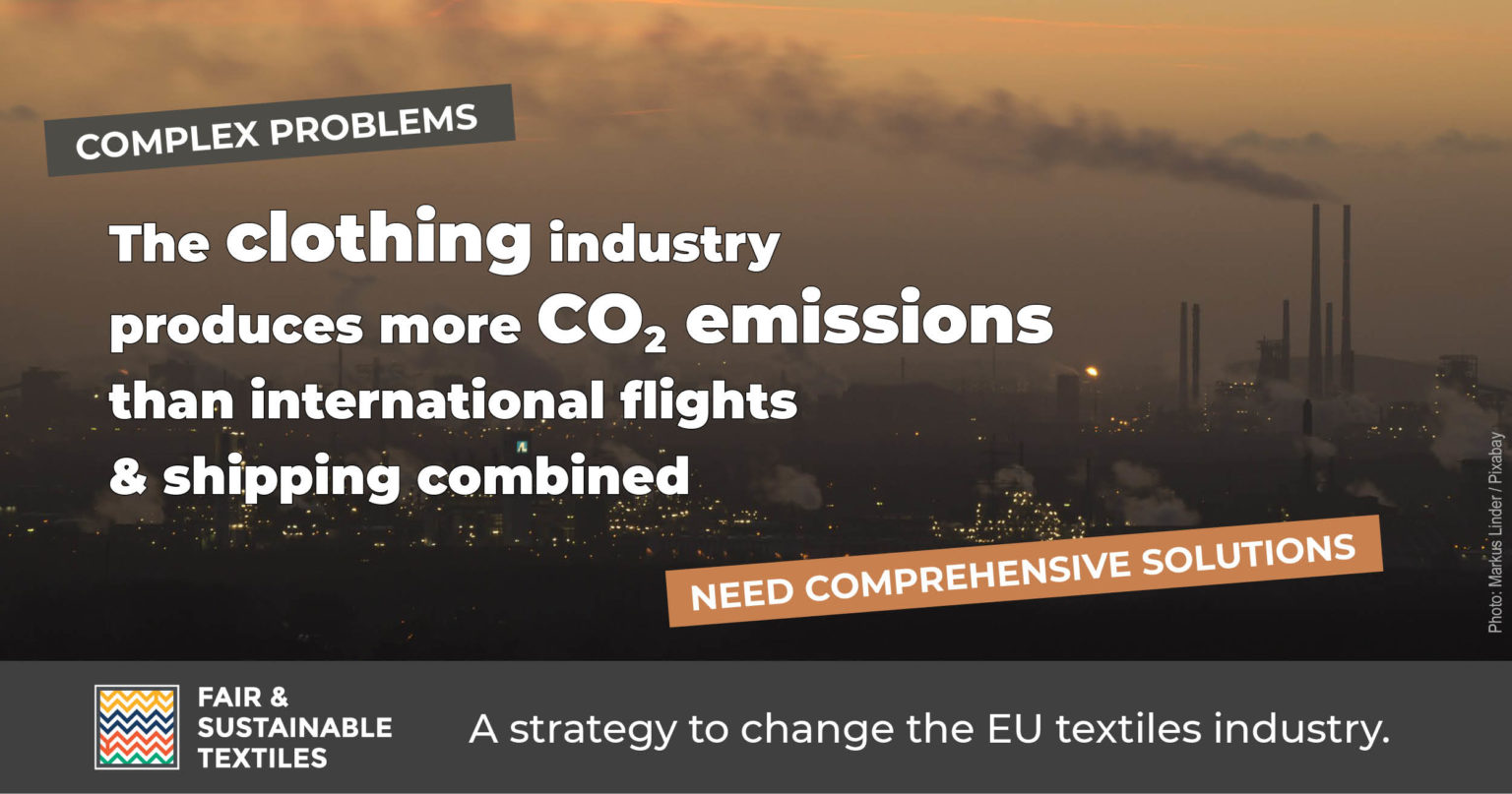Coronavirus strengthens case for new EU textile laws
65 civil society groups publish joint vision.
As the European Commission is poised to start developing a new ‘comprehensive strategy for textiles’ in the coming months, Emmaus Europe and a group of more than 60 civil society organisations have set out their vision for the global Textile, Garments, Leather and Footwear (TGLF) sector.
We are calling on the European Commission, MEPs, and EU governments to back an ambitious strategy that will kick-start a global re-design of the textile industry’s broken business model for the post-coronavirus world.
The TGLF sector has long been characterised by labour rights and human rights abuses along with the immense pressure it exerts on our environment and climate.
The European Union has committed to create a strategy for the textiles sector that aims to address environmental sustainability and human rights issues.
Our proposal for a comprehensive EU Textile Strategy contains recommendations in this objective, including:
- Ensure companies are legally obligated to take responsibility for not only their own activities but their whole supply chain by applying an EU due diligence law across all sectors, including specific requirements for the TGLF sector. Signing a multi-stakeholder partnership should not exempt business from responsibility.
- Stricter environmental rules that cover how textile products sold in the EU are designed and produced, legal and financial responsibility on producers for when their products become waste and a reuse policy that involve the social and solidarity economy actors.
- Ensuring brands and retailers are legally obliged to honour contracts and end the culture of unfair purchasing practices that gives them impunity to cancel orders without honouring payments – leaving workers without pay and a wasteful pile up of unsellable products.
- Make governance reforms and better law enforcement in producing countries part of the solution to sustainability issues faced in the TGLF value chains.
- Through trade policy, use EU market power to leverage sustainable production practices in the TGLF industry.




